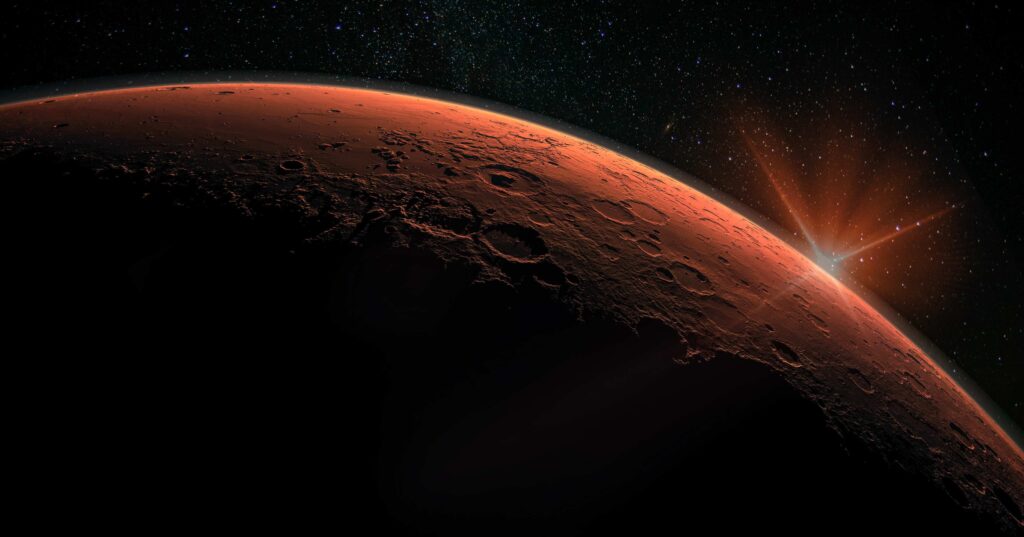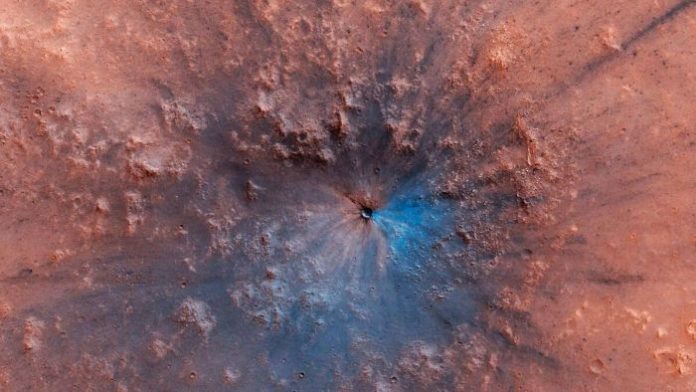The results of a recent study lend further credence to previous research that suggested the presence of a large salt water lake beneath the Martian surface.
The findings and the presence of other wetlands and basins or “bodies of water” on Mars could be crucial in the search for alien life on the planet.
Water on Mars may also be key to “planetary protection” work. The work necessary to ensure that humanity does not contaminate other planets with life from Earth during missions to explore them.

It seems clear, after this latest signal, that even more extensive work is needed to clarify the origin, position and conditions of Martian water. We need to look more closely at Mars and its chemistry: there may be traces of what they call “astrobiological activity” or alien life. Research on the planet Mars, however, will continue apace with the 2021 missions.
Water basins on Mars, the importance of MARSIS
The discovery was made using MARSIS, or Mars Advanced Radar for Subsurface and Ionosphere Sounding, which is on board the Mars Express probe sent by the European Space Agency to orbit Mars.
No magic: there is an explanation for the discovery. The instrument sends radar pulses that can penetrate the surface and polar caps of Mars. They can then be measured as they bounce back towards the spacecraft, allowing researchers to delve deeper into the planet without touching it.
In 2018, researchers using that tool announced that they had found a vast lake beneath the surface of Mars. The discovery was hailed as a major step forward in the search for alien life on the planet.
The study was also questioned at the time by experts who questioned whether scientists had gathered enough details about the nature of the body. There were doubts, essentially, that these were basins of liquid water.
The Italian discovery
In the new study, the researchers led by Elena Pettinelli from Roma Tre University used techniques borrowed from Earth satellites to study the lakes beneath Antarctic glaciers.
In this way, they were able to analyze data from MARSIS which examined a huge mass around the body found on Mars. This allowed them to confirm that it was liquid.
Water on Mars? Super saline
The team was also able to find a number of other water basins on Mars, separate from the main body, which appear to form a mosaic of various salt lakes.
The discovery on Mars seems to indicate that the bodies are “hypersaline solutions”. A real brine in which high concentrations of salt dissolve in the water.
This is perhaps the reason why these pools of water are able to remain liquid despite the very cold conditions of the south pole of Mars.


